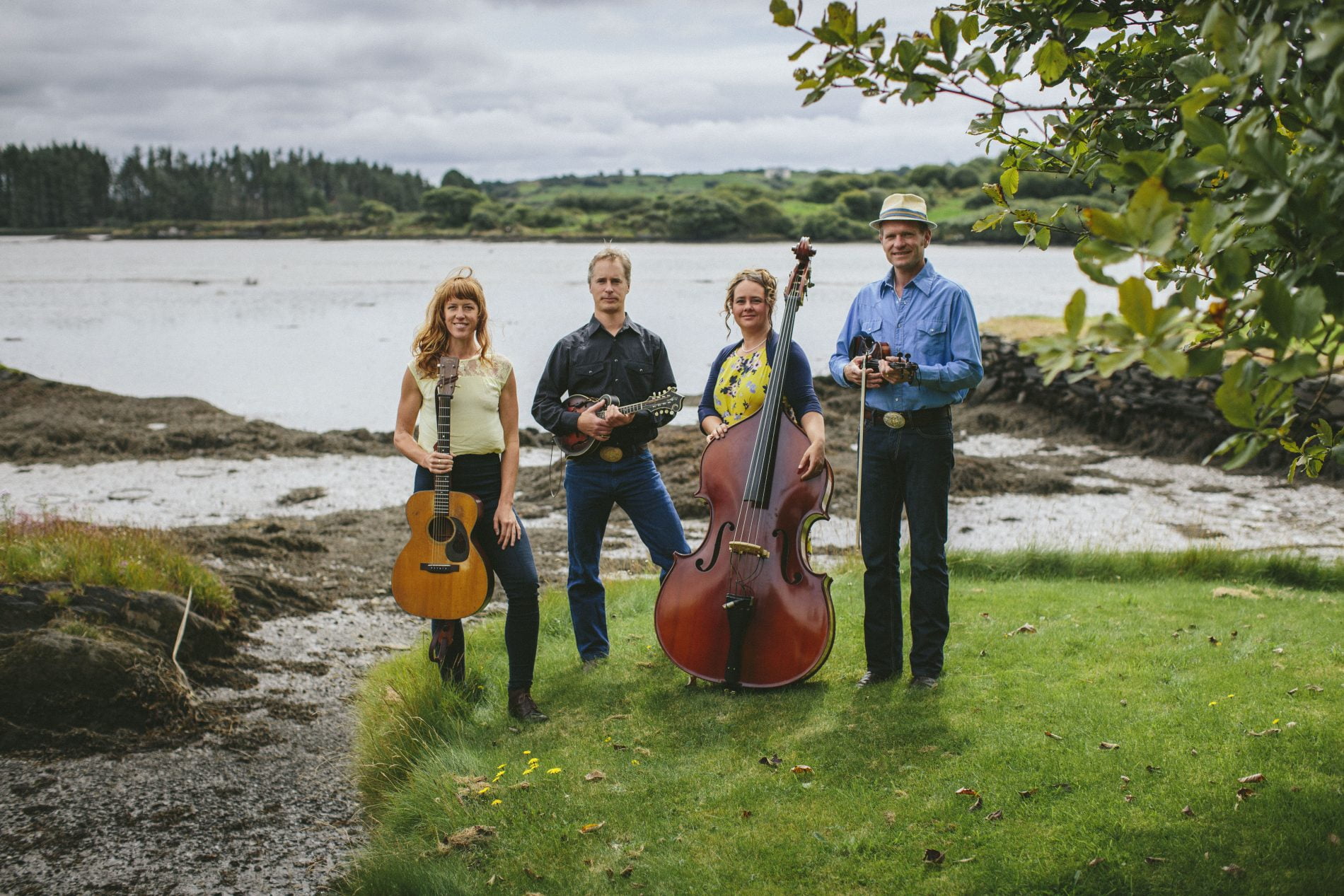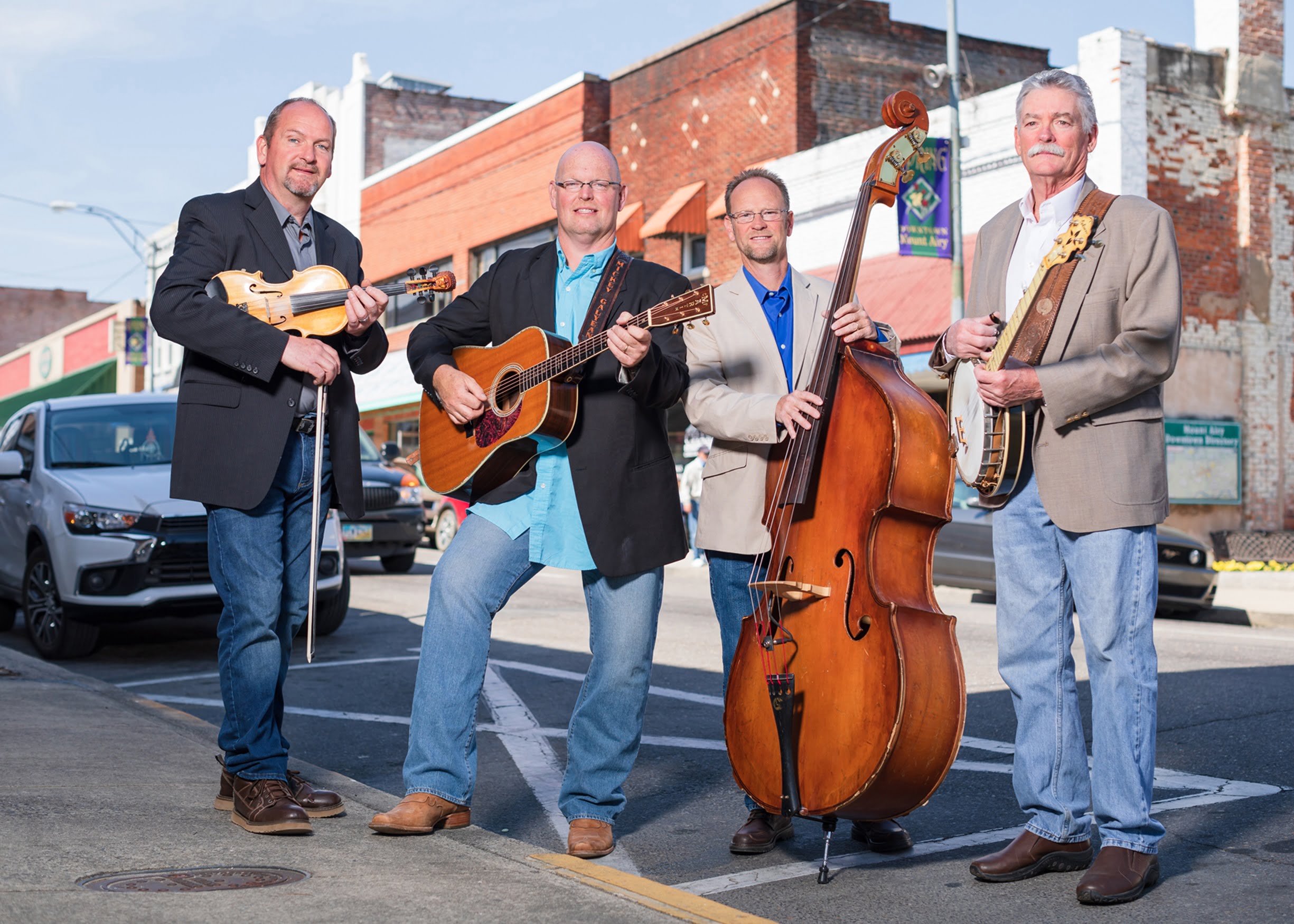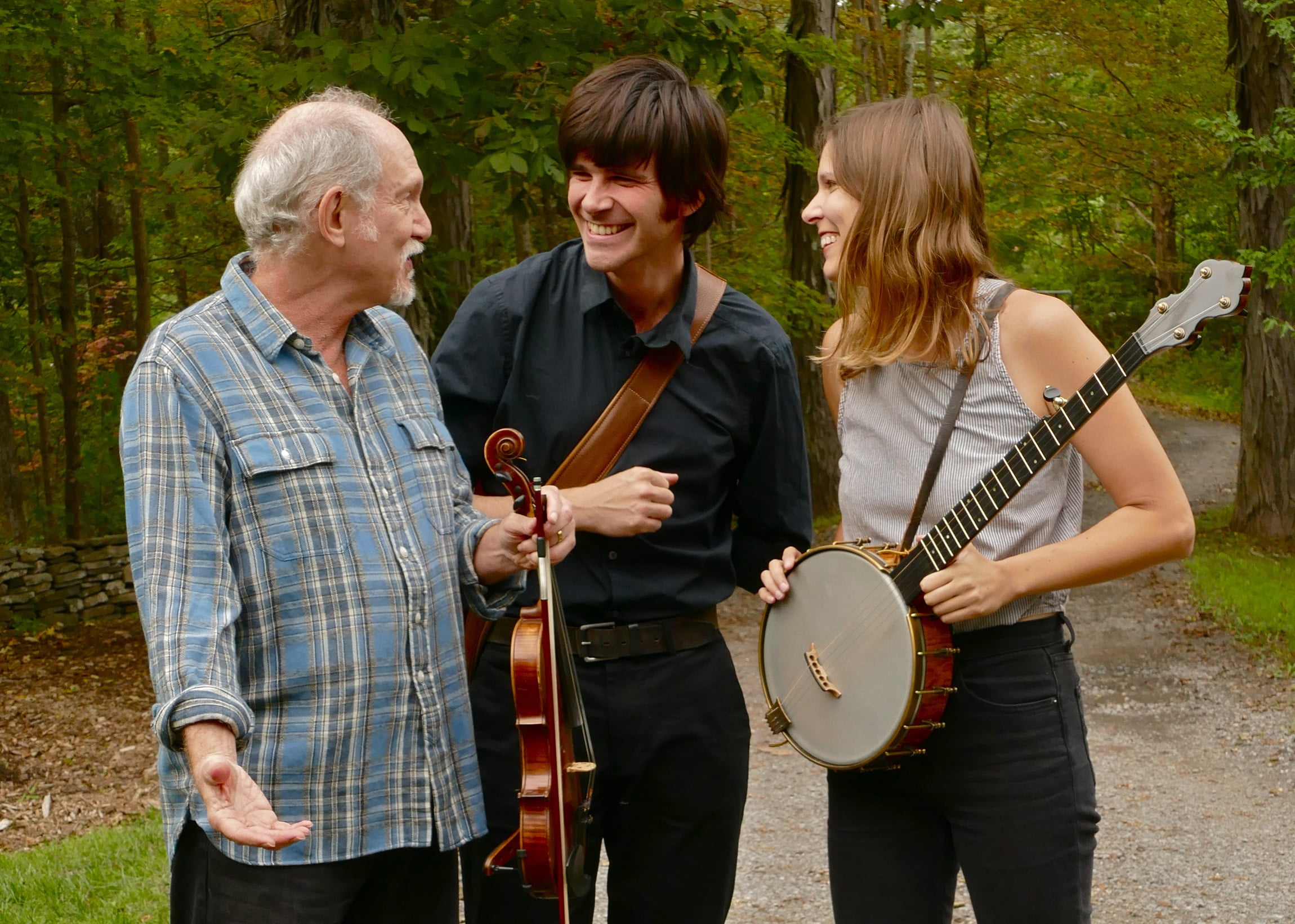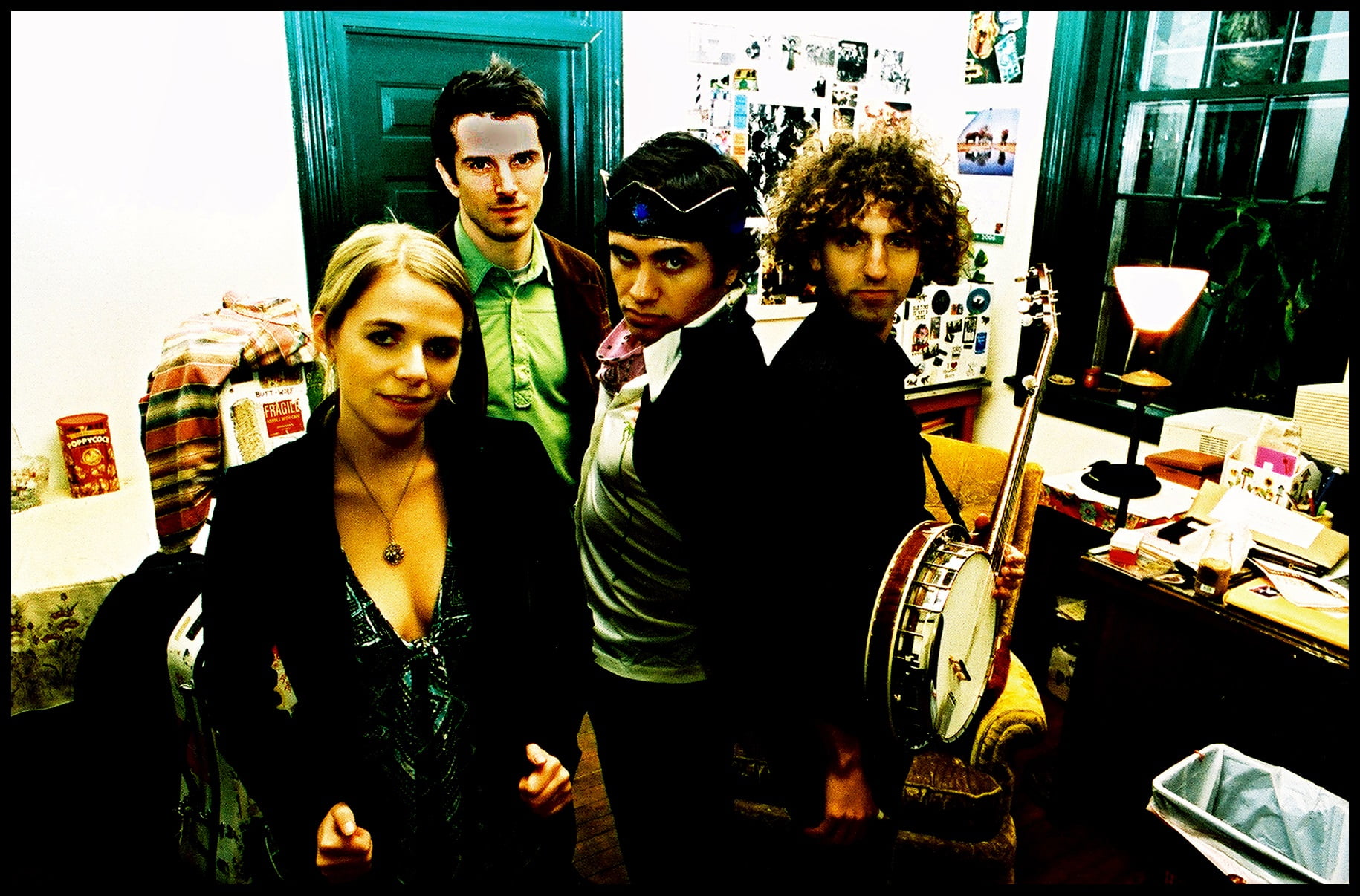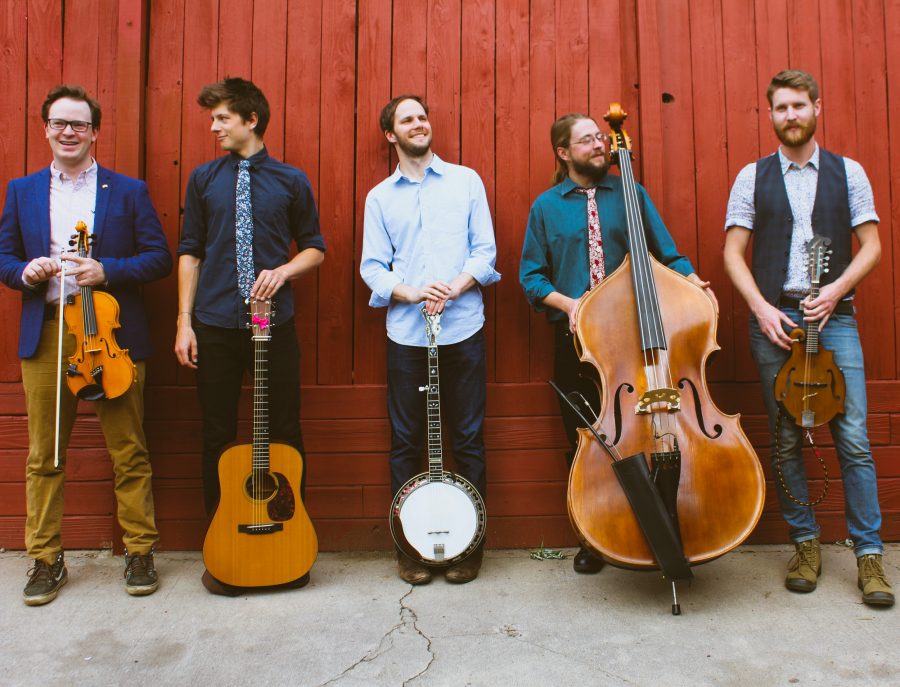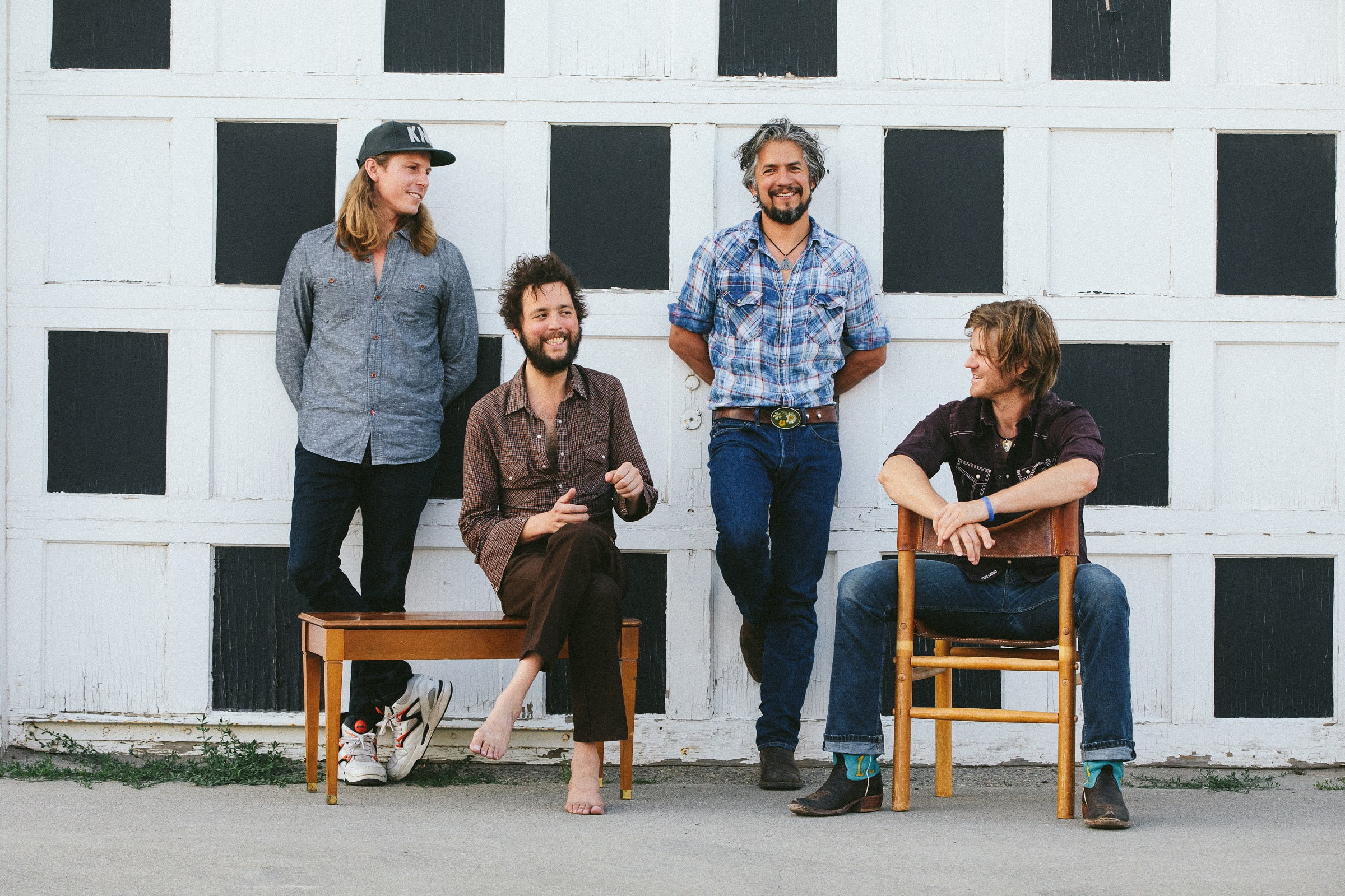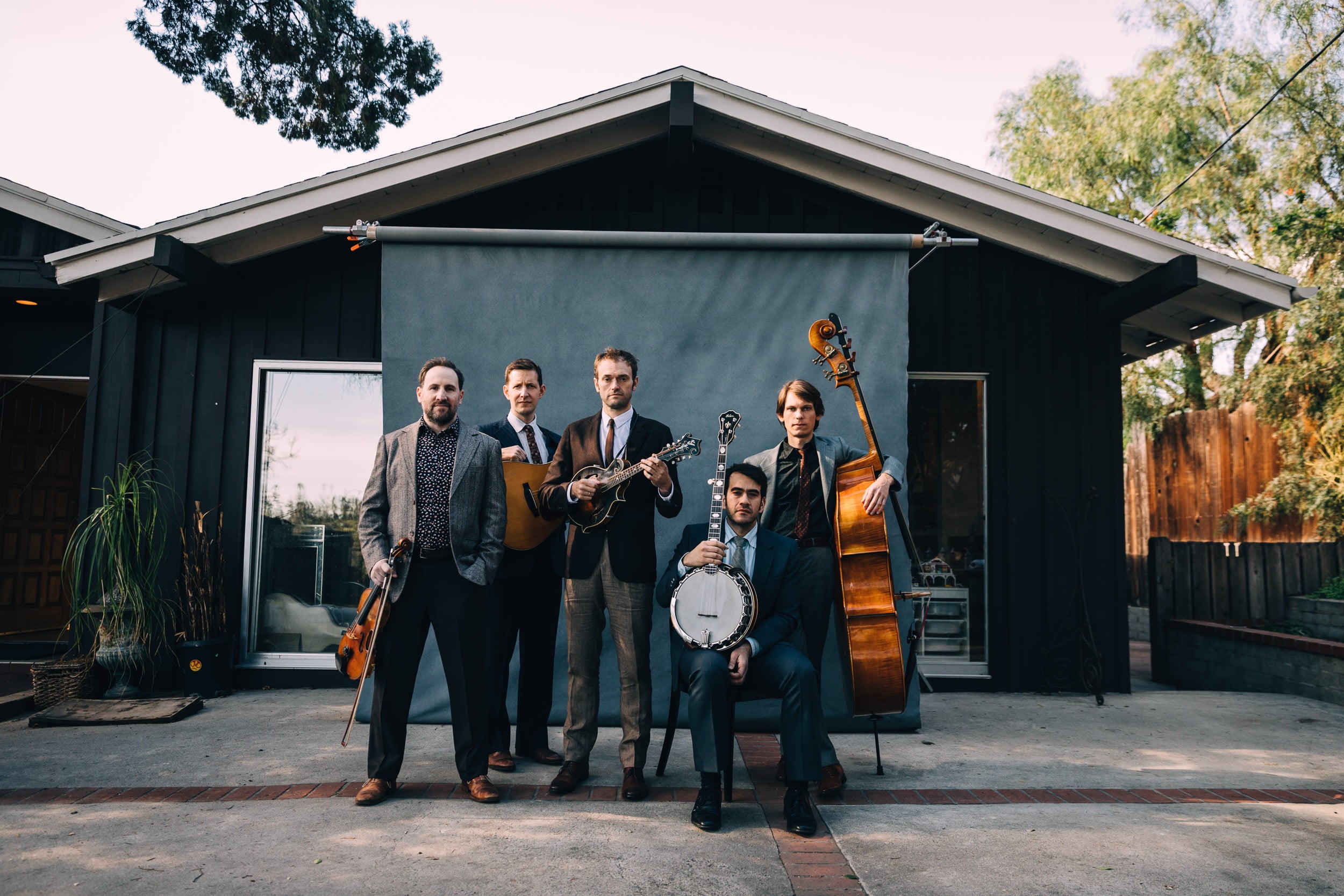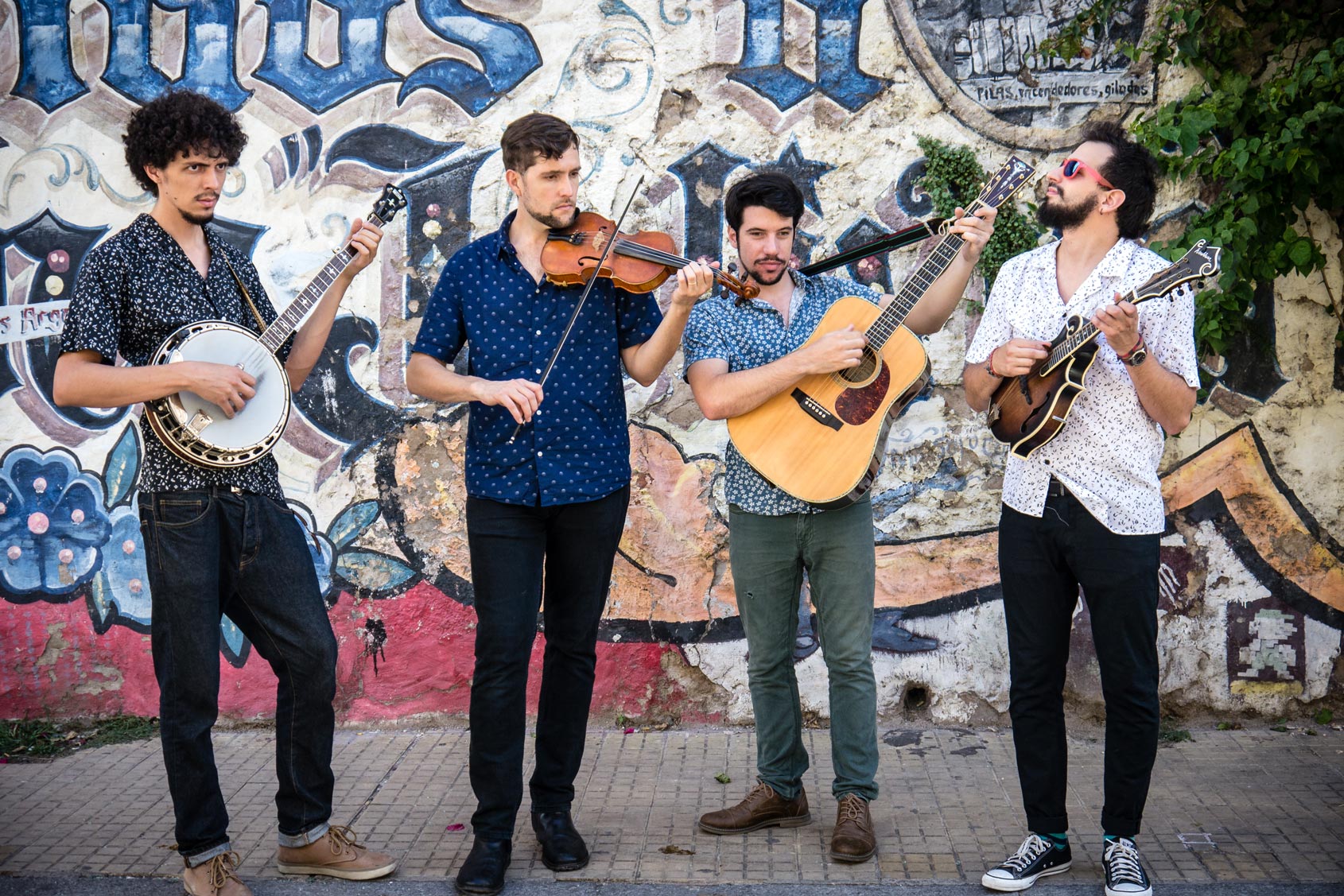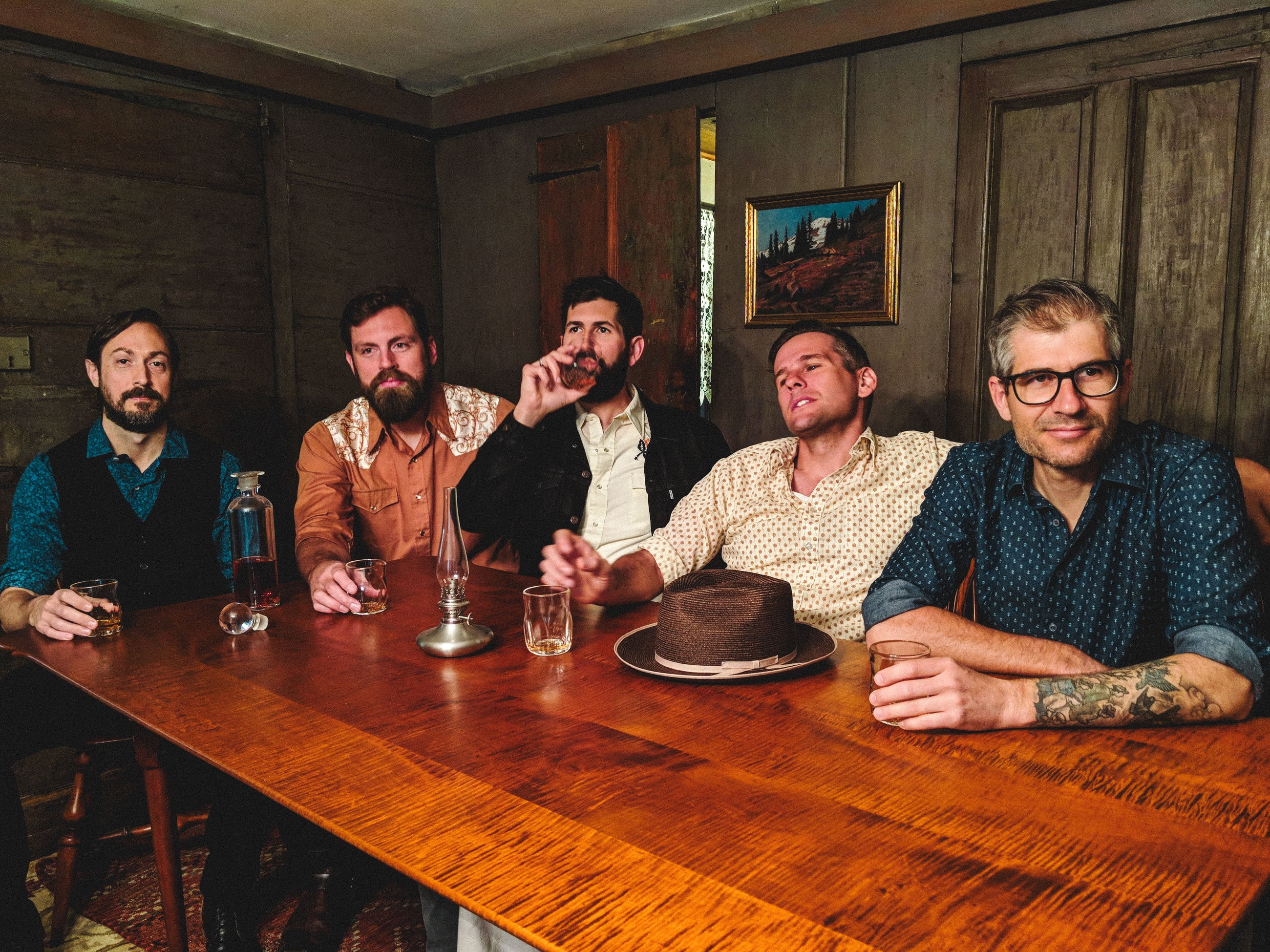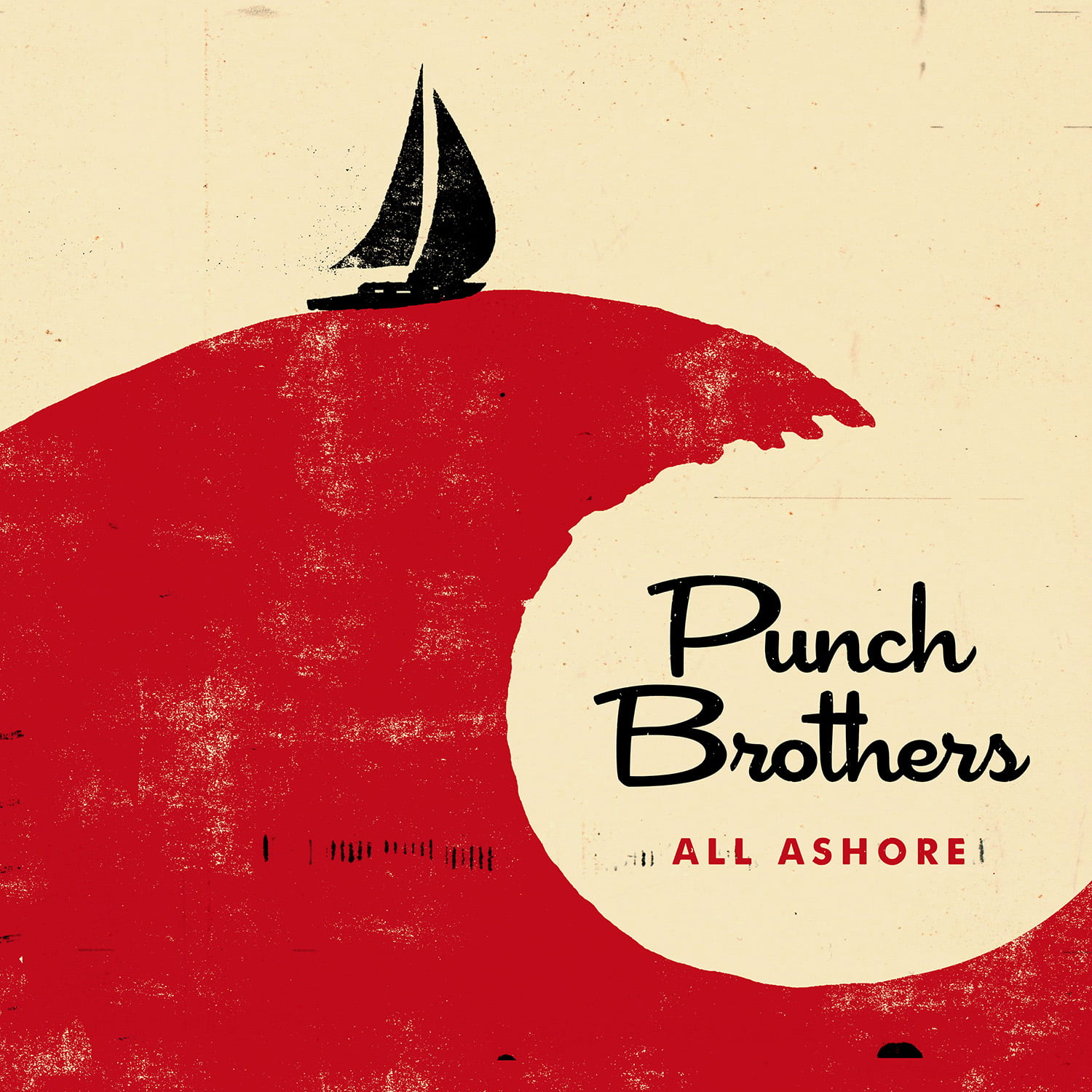As a column, Shout & Shine tends to hinge on unpacking, refuting, and/or subverting expectations about who does and doesn’t “own” American roots music and its constituent genres. So it’s interesting that, in a conversation with Joe Troop, frontman of Argentina-based, bluegrass-flavored, Latin-infused string band Che Apalache, not only would we come up against those sorts of expectations — and how the band refuses to fit any molds set forth by them — but also in certain cases, we realize they fit quite tidily into the norm, the tradition, and the heritage of the music. Despite however far or wide a band may stray from what we may automatically suppose these genres ought to look like, feel like, and sound, roots music will almost always demonstrate that we are more connected and more similar than we’ve been led to believe.
We connected with Troop on the phone ahead of Che Apalache’s performance headlining our Third Annual Shout & Shine: A Celebration of Diversity in Bluegrass — the namesake of this column — at the International Bluegrass Music Association’s World of Bluegrass conference and Wide Open Bluegrass festival in Raleigh, North Carolina, next week.
This whole slew of unspoken, subtle expectations about who has a claim to roots music is already being subverted by just the existence of Che Apalache, so I wonder, as you tour — especially right now, as you tour the U.S. — how have you felt yourselves coming up against those expectations with your audiences, or perhaps anyone who wouldn’t ever suppose someone from a different hemisphere would even want to play bluegrass?
I fell in love with bluegrass because it’s amazing music, really. It’s such a beautiful thing to have happened in the world. This instrumentation, this ensemble, I tend to think of it also outside of bluegrass, but bluegrass is what gave it technique, there’s a lot of evolution that came from bluegrass. Don’t get me wrong, I love bluegrass, but there are some social issues in the bluegrass world — but there are also things that are understandable, because it’s an extension of American society. As American society continues to evolve and change, bluegrass is naturally going to do the exact same thing. It’s kind of a self-evident history. Being historically accurate is something that bluegrass musicians were never good at. They took something that wasn’t an Anglo-Saxon “pow-wow” and they made it into that.
Americans are not good at historical accuracy; our culture is predicated upon the exact opposite.
America’s perhaps the most hyper-nationalized country in the world right now. That’s something that you get to reflect upon a lot when you spend years — I, personally, have been out of the country for thirteen years of my life, so I’ve thought about that a lot, how nationalism seeps into every nook and cranny of your construct of identity. It’s pretty frightening. I would say bluegrass never escaped from that. Because of advertising and marketing and corporate dominance, Americans basically just want sunshine shoved up their asses 24/7. They just want to be told how great they are.
Not only because you come from South America, but the array of backgrounds and starting points for all of you in the band, I wonder how you feel you are working to deconstruct that paradigm? Is that an active thing?
Yes. Absolutely. It’s 100 percent intentional. I’m also cognizant of the fact that I’m privileged, regardless of the fact that I’m gay. I’m a middle-class American, that puts me way ahead of almost anyone anywhere else in the world, as far as having economic ability and being able to go to college without breaking a sweat, all that. My parents were not privileged growing up. They’re baby boomers, they had this idea of what they wanted for their children, that’s what they procured for us, but that gave me a different view than most of my family, who were blue collar. I grew up between two worlds and my parents were the segue between those worlds. Back then, identity was constructed very differently and there wasn’t much wiggle room.
So why be intentional through art? Personally, I developed an empathetic point of view because I had multigenerational friendships, and bluegrass is a brilliant genre because it does — unlike almost any genre in the United States — allow you to intermingle with people of different social statuses. Bluegrass is more of a launching pad than almost anything else, contrary to the very conservative ties it may have. If not the best, it’s one of the best musical forms with which to cultivate a greater sense of empathy. Then, when you want to make a greater artistic statement, you know how to untangle that mess a little bit more. Che Apalache tries to put out things that are very intentional, to help people reflect who may not have had any exposure to certain belief systems before — and I’m referring to my own belief systems as well. I have an agenda, clearly. Mainly that’s to help this process [of breaking down these paradigms] along in some sort of way where people are obligated to think.
I want people who hate these things — immigrants’ rights and gay people — to first fall in love with us almost like someone would as a child, because art has that innocence and beauty that’s primordial. If we can hook them in with artistic prowess and then challenge them to grow, that’s social art. That’s what we’re going for.
Musically then, what are the similarities and differences in your approach to string band music coming from the perspective of Argentina and South America, rather than North Carolina or Appalachia? So we’re in Latin America, and in the 1970s, the United States backed Operation Condor, which was an intentional ousting of and/or assassination of democratically-elected governments in the southern cone of South America. They were replaced by very violent dictatorships. American intermingling in Latin America has led to the basic destruction of young intellectuals in the ‘70s, their baby boomers, who were pressing very important social issues. All of this led to some serious bullshit down in South America. Our histories are very intertwined. Talk about Americans needing sunshine shoved up their asses — to deny the fact that America and the CIA were directly responsible for what happened in South America would be equivalent to saying that Hitler and the Third Reich weren’t responsible for the Holocaust. It’s an important thing to understand when presenting a string band in South America, because most people are going to simply reject it. A lot of people would not look favorably on anything iconically American. That’s just part of what you have to understand before you even start to understand what an Argentinian string band means. You have to have context to know what you’re doing in the world. That’s what Americans are so pitiful at, having context. The inherent symbolism of a string band in South America is something that we’re conscious of both there and here.
What I hear you saying is that you’re patently, obviously American in Argentina and Latin America, but at the same time, you’re existing in this odd middle ground where, in the U.S., folks will view you as patently foreign. How do you bridge that divide?
Through queerness! [Chuckles] That’s my guiding light. It all started because of queerness. I fell in love with bluegrass simultaneously with the recognition of my own sexuality. That was the major defining factor in the construct of my identity. Being different, while at the same time being 100 percent Anglo-Saxon, North Carolinian, banjo and fiddle player, was like trying to tame two wild, bucking mules with a rope around each, trying to pull them back together.
Something that I continually go back to is that if we, as othered folks, are able to stand in the center of disparate halves like this–
Yeah! Who else is going to do it? I think being “other” means that you’ve already had societal defeat, you’re nothing. Back when I was coming to terms with my sexuality, gay meant death. I went to Spain when I was 19 and no one gave a shit. I have to give Spain a hand, I love that place. In a personal way, queerness plus Latin culture gave me the liberty to deconstruct my own idea of my identity.
I want to be very clear in connecting all of these thoughts, for our readers, to Che Apalache’s music. Let’s talk about “The Wall.” I love how it subverts that style of song with what it talks about. I feel like it’s the perfect synergy of all of these things you’re talking about.
That song was again, very intentional. I knew it had to be about the wall. It took getting piss drunk on a bottle of whiskey and writing it all out, in my friend’s bathroom crying — it had to be exactly that. The whole mission there was to create a song inspired by Ralph Stanley and what he represented. He’s one of those luminous voices that comes once in a century, he sounded like he was a hundred years old even in his 20s. He was an amazing but also very humble guy. He campaigned for workers’ rights, unions, and workers’ syndicates. He may have fallen into the clenches of Obama, in a way — because Obama didn’t deliver on a lot of the key issues he campaigned for — but the symbolism of Ralph Stanley campaigning for Obama, that speaks for itself, regardless of what happened afterwards. The idea was to put democracy back into the hands of the people. Ralph Stanley has that legacy.
Sure, there are degrees of radicalism — it all tends to be relative. In southwest Virginia, what he did was extremely radical. You have to contextualize it.
There’s such a history and legacy in that region of folks who would have been relegated to the forgotten pages of history being on the front lines of progressive issues.
Totally. So that song, [“The Wall,”] on a musical and ethnomusicological level, comes from that! Four-part vocal harmonies and Southern gospel unify our band. In April we even did a residency in southwest Virginia through the Crooked Road. We got to play at the Ralph Stanley Museum and his birthplace. In those regions, a lot of those folks are conservative, they identify as Trump voters. We couldn’t think of a better way besides taking that style of music and try to somehow rope them in, then when the fourth verse comes through, they’ve already fallen in love with us, but then we’re tearing their wall down.
And that act isn’t something that you’ve set out to do just because Trump is president; you’re building on what all of these artists and people have done before you, using this specific style of music to make these changes in the world.
Totally. Exactly. We performed this song at [the Old Time Fiddler’s Convention in] Galax, Virginia, and you can see a lot of people listening politely, and only a couple of folks getting angry, but most sat listening respectfully. But hopefully, when they got up the next morning, it made them think.
Once again, queer people, othered people, are the perfect example of this hot button issue of “come togetherness.” We, the othered folks, are leading the way, showing how to come together despite our differences in a way that honors ourselves and our identities, without being complicit in our own oppression. That’s the power we have, to show people what it looks like to truly come together, to start these dialogues, and conversations. Whether it’s at IBMA and Shout & Shine, or at Galax, or around the country, or in Latin America.
That’s it exactly. I made a promise to myself to fly the gay flag, the rainbow flag at Galax next year over our campsite, because it’s usually just stars and bars there. I think that it would be nice to have other folks there to be a part of that! There’s strength in numbers. I would be reticent to go in there with an overt political agenda, though. Because that’s not strategic enough. I think what people like about Che Apalache is that it’s fresh, it’s breathing new energy into something, that for a lot of people has grown stale. That’s the majority of the comments we get. There are a lot of traditional bluegrass fans that follow us because they feel that the genre is doing what it always has — a resurgence of a new kind of thing. That new kind of thing isn’t going to be tipping the hat to the past in a cheeseball, more mash sort of way. People aren’t stupid. People want symbolism. People want string band music.
Photo courtesy of the artist.
